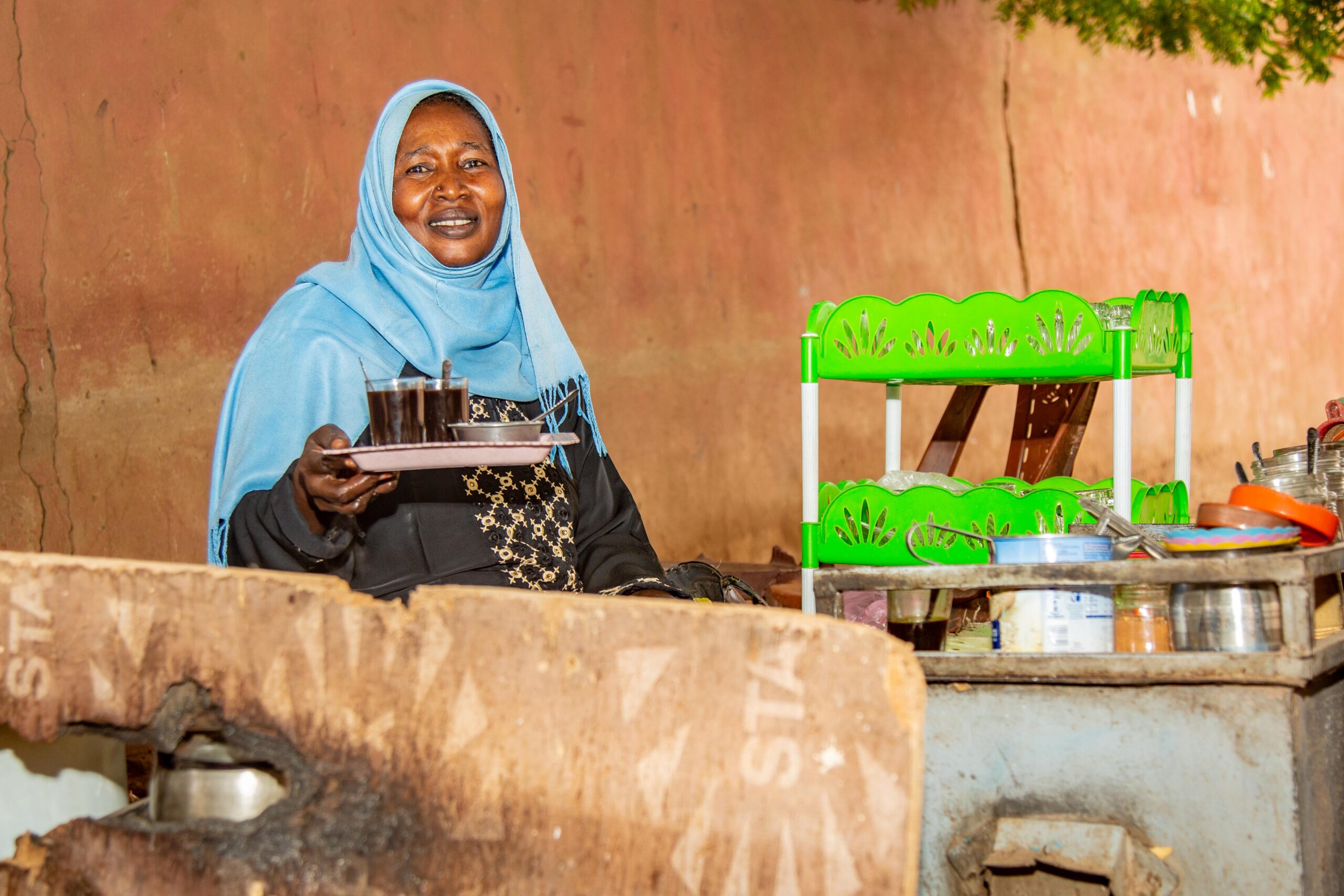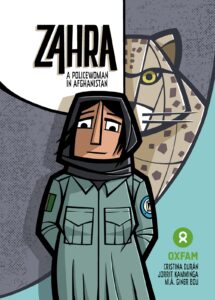STRUGGLING TO SELL TEA AMID KHARTOUM LOCKDOWN
Interview by Amal Abdelgadir
After Sudan reported its first COVID-19 case on March 13, 2020, the government quickly imposed a partial lockdown—including a curfew from 3pm to 6am, restrictions on public gatherings, mandatory mask-wearing, required social distancing, and the closure of all businesses except pharmacies and supermarkets. These public health measures have hit women working in the informal sector particularly hard. All businesses that violated the order and were found open, were fined 5,000 SDG. When the government announced a total lockdown of the capital Khartoum and other cities in April, street vendors too were forced to abandon their businesses. That includes thousands of women who sell tea on Khartoum’s sidewalks. Selling a cup of tea for a fraction of what It might cost in a café, tea sellers rely on daily earnings to support their families; without this they faced enormous hardship.
This is the experience of Halema:
For more than 20 years, I’ve been selling tea and coffee on the streets of Khartoum, on Pio Yokwan Road, Khartoum to be exact. My name is Halema and I’m 48 years old. I support a household of eight people, including my four children who are 4, 12,17, and 22 years old. My family and I depend on my day to day salary, so I never imagined there would be a time where I wouldn’t work every day, especially not for a full two months.
I knew there might be emergencies, when we would need extra money, and so I would save a portion of my salary. But I never imagined an emergency that would prevent me from working, for so long. My savings have not been enough.

Before the COVID-19, I always had non-stop customers. My daily profit ranged from 350-400 Sudanese pounds. My working hours were long—from sunrise to sunset.Transportation to work was easy to find and affordable.
After the virus, tea ladies were banned from the streets. For two months, I did not work. The Women Food and Beverage Sellers Union were in agreement with the government about closing tea stands, because they gathered people, drinking from the same cups, without social distancing. The government had committed to provide monthly financial support. As a member of the Union, I was supposed to receive this support, but I never received anything. They did not reach out to me and I didn’t know how to contact them.
Hunger quickly became a problem in the house. My children wouldn’t tell me that they were hungry, but a mother can tell and see it in their eyes and bodies. We were only eating one meal day. If we ate breakfast today, tomorrow we would eat dinner. It would only be one dish either salad, egg, foul (fava beans) or falafel. Also due to the increasing prices, I had to stop buying about 80% of the food items we used to eat, including meat and milk
I returned to work at the beginning of July because we had no money. We had used all my savings. Although the country hadn’t opened and I was afraid of being locked up, it was a risk worth taking, even if I got only two or three customers. My family needs to eat. People are scared about catching the virus, and due to the curfew, customers are few. My profit now after returning is 100-150 Sudanese pounds per day, not even half of what I was making before. Due to inflation, I had to increase the price of tea by 10 pounds to 30 sdgs and coffee by 20 pounds to 50 sdgs in order to restock and make a profit. Although I have returned to work, things are still not like how they used to be. But Alhamdulillah, things are better and my family can eat.





